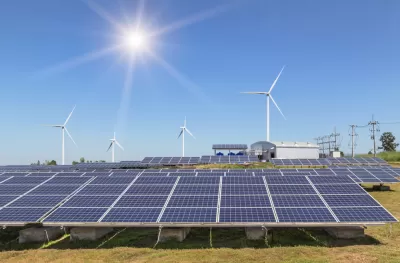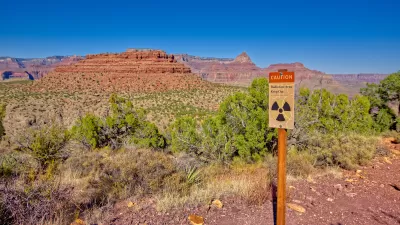A non-binding resolution is a small step in the direction of clean energy.

"The Chicago City Council voted Wednesday to approve a non-binding resolution that sets a goal of transitioning the city to 100 percent clean energy over the next 16 years," reports Alex Ruppenthal.
"The resolution, which passed unanimously, calls for the city’s buildings to be powered exclusively by renewable sources by 2035. It also sets a goal of converting all Chicago Transit Authority buses to electric energy by 2040," adds Ruppenthal.
The resolution is non-binding, meaning the vote was largely a symbolic gesture, explains Ruppenthal. The resolution does, however, put in motion a process to create a plan for transitioning to clean energy. That clean energy plan is due by 2020.
FULL STORY: Chicago City Council Approves Clean Energy Resolution

Planetizen Federal Action Tracker
A weekly monitor of how Trump’s orders and actions are impacting planners and planning in America.

Maui's Vacation Rental Debate Turns Ugly
Verbal attacks, misinformation campaigns and fistfights plague a high-stakes debate to convert thousands of vacation rentals into long-term housing.

Restaurant Patios Were a Pandemic Win — Why Were They so Hard to Keep?
Social distancing requirements and changes in travel patterns prompted cities to pilot new uses for street and sidewalk space. Then it got complicated.

In California Battle of Housing vs. Environment, Housing Just Won
A new state law significantly limits the power of CEQA, an environmental review law that served as a powerful tool for blocking new development.

Boulder Eliminates Parking Minimums Citywide
Officials estimate the cost of building a single underground parking space at up to $100,000.

Orange County, Florida Adopts Largest US “Sprawl Repair” Code
The ‘Orange Code’ seeks to rectify decades of sprawl-inducing, car-oriented development.
Urban Design for Planners 1: Software Tools
This six-course series explores essential urban design concepts using open source software and equips planners with the tools they need to participate fully in the urban design process.
Planning for Universal Design
Learn the tools for implementing Universal Design in planning regulations.
Heyer Gruel & Associates PA
JM Goldson LLC
Custer County Colorado
City of Camden Redevelopment Agency
City of Astoria
Transportation Research & Education Center (TREC) at Portland State University
Jefferson Parish Government
Camden Redevelopment Agency
City of Claremont





























